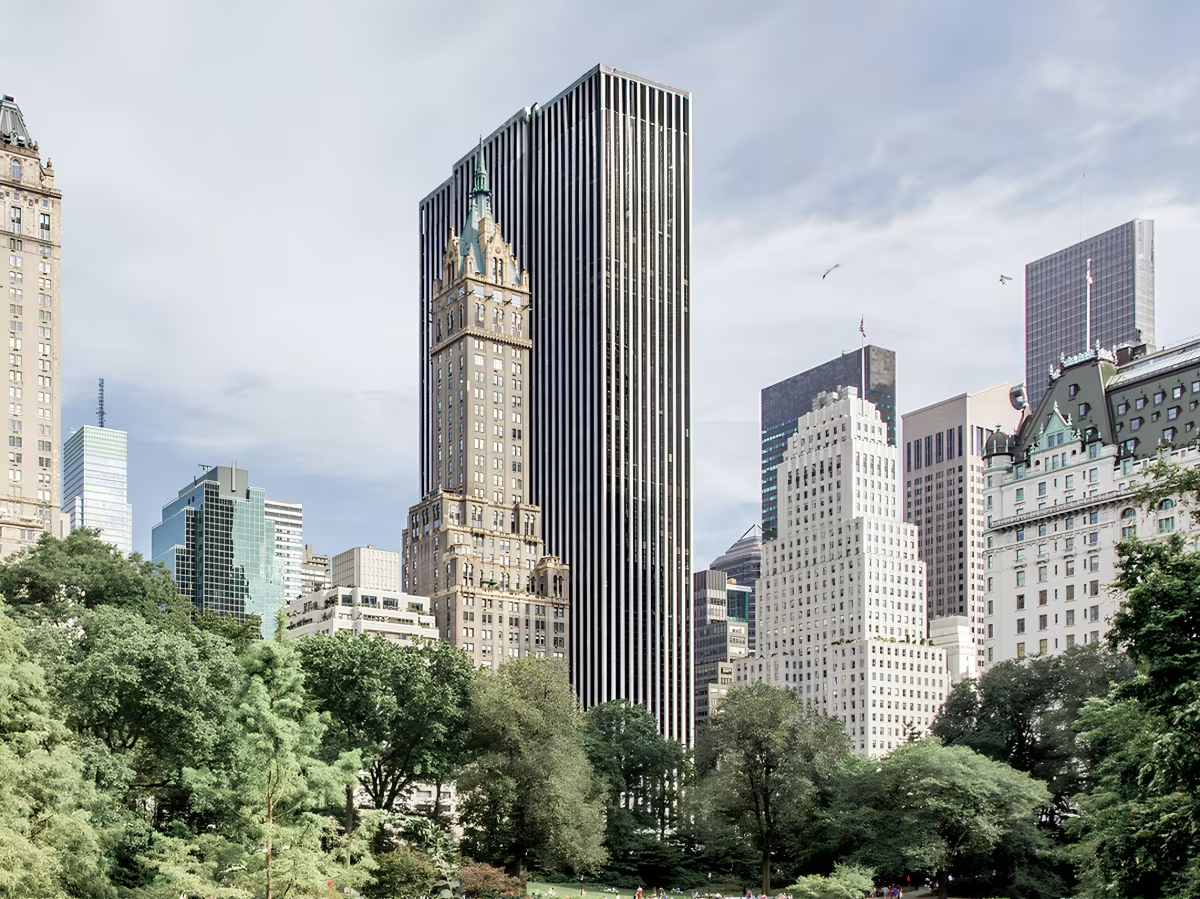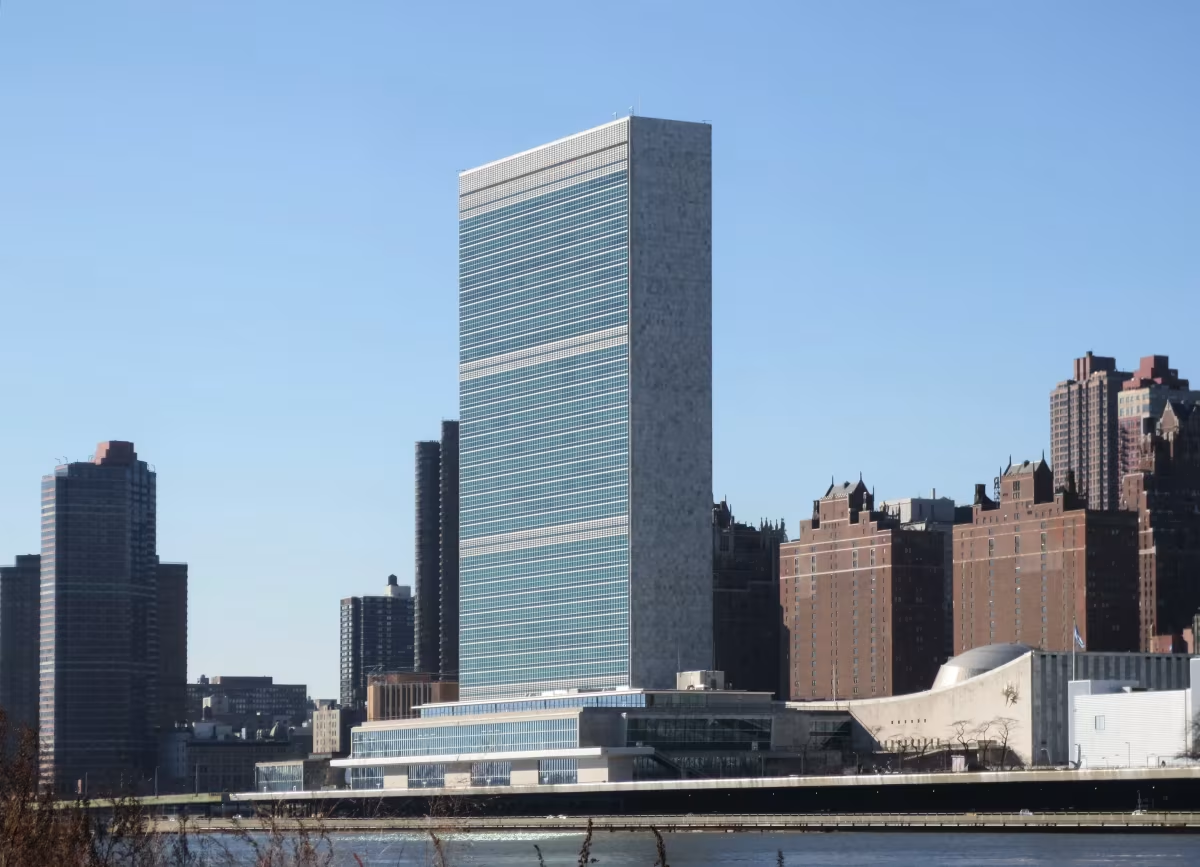General Motors Building vs United Nations Secretariat Building


Comparing the General Motors Building and the United Nations Secretariat Building is interesting because they both rise in New York, NY, yet they were conceived by two different design teams, Edward Durell Stone & Associates and Wallace Harrison, and were completed at different points in time. They were finished more than a decade apart.
This contrast within the same city allows us to see how different creative minds interpreted the evolving needs of New York across time.
Let's take a closer look!
Height & Size
The General Motors Building is clearly the larger tower of the two, both in terms of height and number of floors. It rises to 705ft (215m) with 50 floors above ground, while the United Nations Secretariat Building reaches 505ft (154m) with 39 floors above ground.
Of course, each project may have faced different briefs or regulatory constraints, which we don't really know about and could also explain the outcome.
Architectural Style
Both the General Motors Building and the United Nations Secretariat Building were designed in line with the aesthetic conventions of the International Style style.
At the time, this style was at the height of its popularity. So both Edward Durell Stone & Associates and Wallace Harrison followed what was in many ways expected of them, producing designs that fit comfortably within contemporary architectural norms, rather than breaking with convention.
Uses
The General Motors Building is primarily commercial, while the United Nations Secretariat Building is primarily governmental.
Both towers provide significant parking capacity, with General Motors Building offering 136 spaces and the United Nations Secretariat Building offering 1500.
Structure & Facade
Both the General Motors Building and the United Nations Secretariat Building rely on a Frame structural system.
A frame structure uses a grid of columns and beams to carry the building's loads. This frees the walls from structural duties, allowing for flexible floor plans and larger windows.
They also employ the same type of facade, a Curtain Wall facade.
A curtain wall is a non-load-bearing facade hung from the structural frame. It is anchored to floor slabs and transfers only its own weight and wind loads, allowing for sleek, glassy exteriors.
| General Motors Building | United Nations Secretariat Building | |
|---|---|---|
| Edward Durell Stone & Associates | Architect | Wallace Harrison |
| 1964 | Design Started | 1947 |
| 1965 | Construction Started | 1949 |
| 1968 | Year Completed | 1951 |
| International Style | Architectural Style | International Style |
| Commercial | Current Use | Governmental |
| 50 | Floors Above Ground | 39 |
| 2 | Floors Below Ground | 3 |
| 196 | Last Floor Height | 141 |
| 215 m | Height (m) | 154 m |
| 164,800 m² | Usable Area (m²) | 82,600 m² |
| Frame | Structure Type | Frame |
| Steel | Vertical Structure Material | Steel |
| Concrete, Steel | Horizontal Structure Material | Reinforced Concrete |
| Yes | Facade Structural? | No |
| Marble, Glass | Main Facade Material | Glass, Marble |
| NY | State | NY |
| New York | City | New York |
| 767 5th Avenue | Address | 750 1st Avenue |